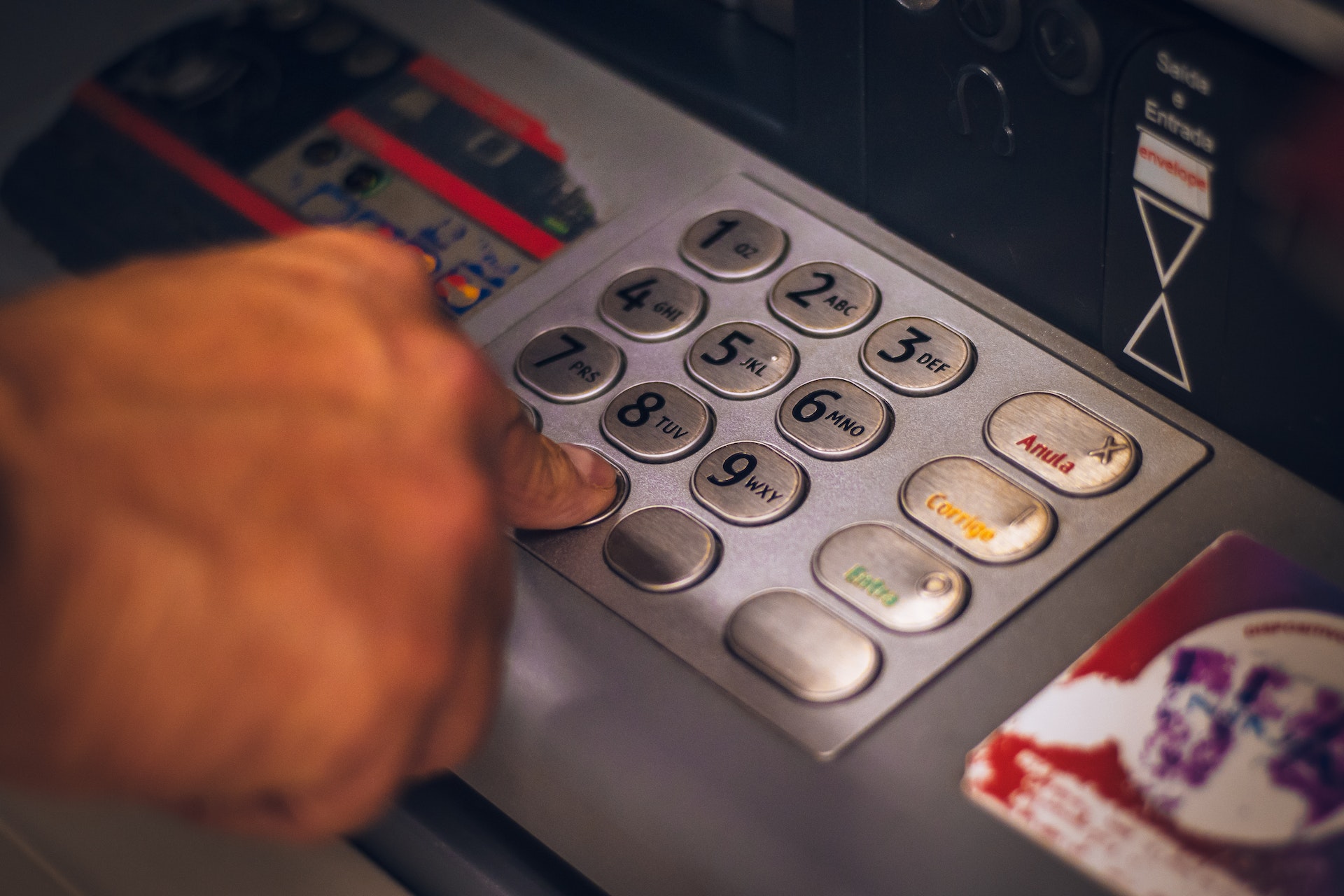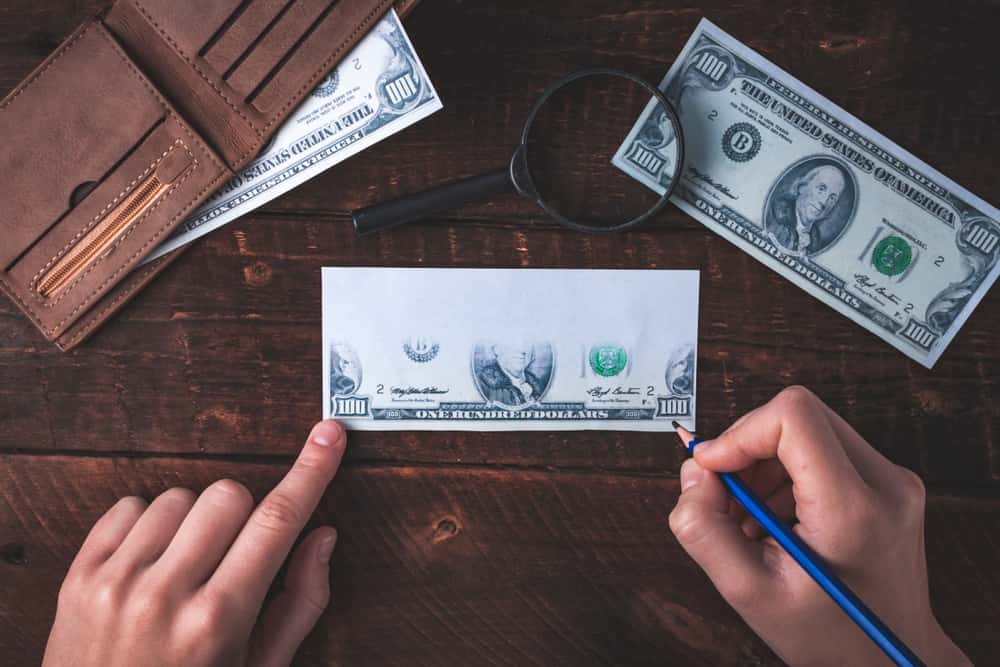Understanding Money Theft

Money theft has been around as long as currency itself. In today's digital age, the avenues through which money can be stolen have multiplied, making it all the more crucial for individuals to stay informed and vigilant.
Here's a look into the various ways money theft can occur and how you can protect yourself.
Physical Theft
How It Happens: The most traditional form of money theft involves physically taking cash or property, such as pickpocketing, burglary, or mugging.
Why It Happens: The immediate accessibility of cash or valuable items can lure thieves, who see a direct and instant reward for their actions.
Avoidance Tips: Always be mindful of your surroundings, avoid displaying large amounts of cash in public, and secure your home with locks and security systems.
Credit Card Fraud
 Jirapong Manustrong, Shutterstock
Jirapong Manustrong, Shutterstock
Statista Research reported that in 2020, the value of payment card fraud losses in the U.S. amounted to approximately $9.47 billion. These losses predominantly occurred via card-not-present (CNP) transactions, highlighting the vulnerabilities of online shopping.
How It Happens: This can occur when someone gains unauthorized access to your credit card details and makes purchases on your behalf.
Why It Happens: With just a few key pieces of information, criminals can make high-value purchases or even clone your card.
Avoidance Tips: Regularly monitor your card statements, report any discrepancies immediately, and never share your card details over unsecured platforms.
Identity Theft
According to a 2021 online survey by The Harris Poll, approximately 1 in 20 Americans (5%) reported that they've been victims of identity theft. This number has been steadily on the rise with the digital age, emphasizing the need for increased online security measures.
How It Happens: Thieves gain access to personal information like Social Security numbers, bank account details, or other financial data to commit fraud or other crimes.
Why It Happens: Armed with your personal details, thieves can open new accounts, file fake tax returns, or even commit crimes under your name.
Avoidance Tips: Safeguard personal information, be wary of unsolicited requests for sensitive data, and use secure passwords online.
Online Scams
The FBI's Internet Crime Complaint Center stated that they received over 791,790 complaints about suspected internet crime in 2020, with reported losses exceeding $4.2 billion. Phishing scams were among the most frequently reported.
How It Happens: Through phishing emails, fake websites, or online offers too good to be true, scammers can deceive you into voluntarily transferring money or sharing personal information.
Why It Happens: The internet provides anonymity, making it easier for scammers to trick large numbers of people without revealing their identity.
Avoidance Tips: Be skeptical of unfamiliar emails or offers, never click on suspicious links, and use secure, encrypted websites for online transactions.
Bank Fraud
According to the American Bankers Association's 2019 Deposit Account Fraud Survey, banks lost $2.8 billion to deposit account fraud in 2018, which includes check fraud, wire transfer fraud, and other types of fraudulent activities. Of this amount, $1.3 billion was borne by banks and $1.5 billion by merchants, but banks were able to prevent an additional $22.3 billion in attempted fraud.
How It Happens: This can involve various methods like check fraud, account takeover, or even creating fake bank websites to deceive customers.
Why It Happens: Criminals see banks as lucrative targets given the significant amounts of money stored and transferred daily.
Avoidance Tips: Only access your bank's website directly (not through email links), regularly review account statements, and report any unauthorized transactions immediately.
ATM Skimming
FICO Card Alert Service reported that ATM skimming incidents, where thieves place a device on ATMs to capture card information, increased by 10% in the U.S. in 2018 compared to the previous year. These incidents often involve both a skimming device to capture card data and a hidden camera to record PIN entries.
How it Happens: ATM skimming involves criminals attaching a discrete device, often referred to as a "skimmer," onto the card reader slot of an ATM. This device reads and stores the information from the magnetic strip of any card that's inserted into the machine. They will also place a hidden camera or a false keypad on the ATM to capture unsuspecting users' PINs.
Why it Happens: ATM skimming is a lucrative crime. With just a small investment in equipment, criminals have the potential to access multiple bank accounts and withdraw a significant amount of money before being detected.
Avoidance Tips: Examine the ATM before using it, cover the keypad with your hand when entering your PIN, only use machines in well-lit locations, and check your bank statements regularly.
Ponzi Schemes and Fake Investments
The U.S. Securities and Exchange Commission (SEC) has noted a resurgence of Ponzi schemes in recent years. In 2020, the SEC charged individuals or entities in 19 Ponzi scheme-related cases, representing a loss of billions of dollars for investors.
How It Happens: Scammers promise high returns on investments, but instead of using your money to invest, they use it to pay off earlier investors.
Why It Happens: Greed and the allure of quick wealth can cause even savvy individuals to fall for these schemes.
Avoidance Tips: Always research before investing, be skeptical of returns that seem too good to be true, and consult with financial advisors.
Counterfeit Money
The U.S. Secret Service reported that in fiscal year 2019, they seized over $204 million in counterfeit U.S. currency before it entered circulation. In the same year, they made 2,099 domestic arrests related to counterfeit currency.
How it Happens: Counterfeit money is produced with the intent to mimic real currency. Advanced printing technologies, ink, and paper have made the production of counterfeit money more sophisticated and harder to detect. These fake bills are then distributed in various ways, often being mixed with genuine notes to make them less detectable.
Why it Happens: Counterfeiting money can be immensely profitable. If done convincingly, criminals can purchase real goods and services with fake money, essentially getting something for nothing.
Avoidance Tips: Familiarize yourself with the security features of genuine notes. This can include watermarks, security threads, raised printing, and color-shifting ink. Be cautious when accepting large denominations for small purchases, a common tactic used by those trying to pass counterfeit bills.
Final Thoughts
Money theft has evolved over time, and with advancements in technology, the strategies employed by thieves have become more sophisticated. It's essential to be proactive, stay informed, and utilize the tools and resources available to protect yourself and your assets from potential theft.















